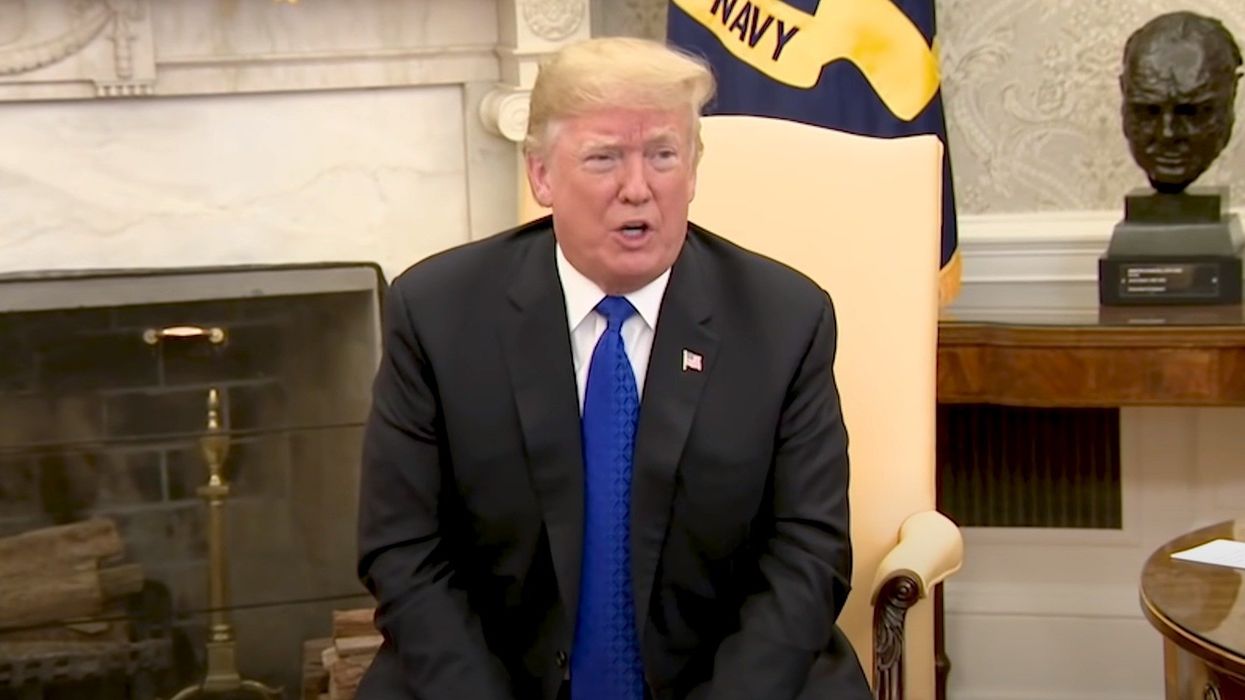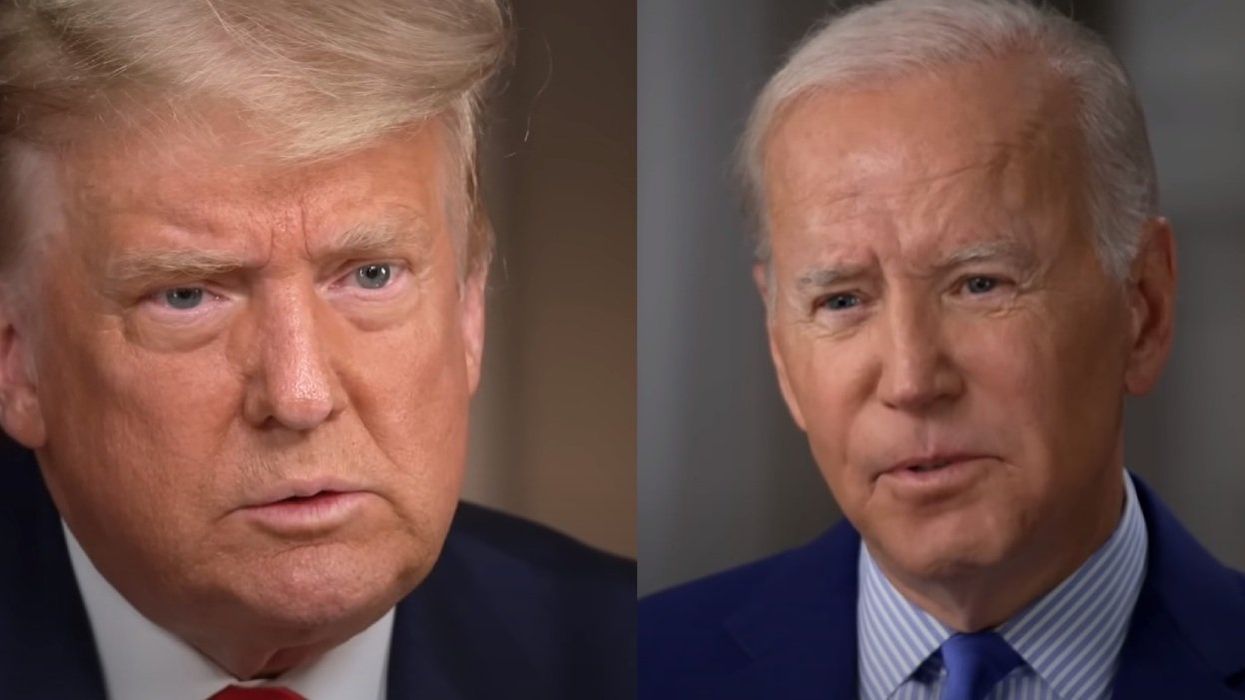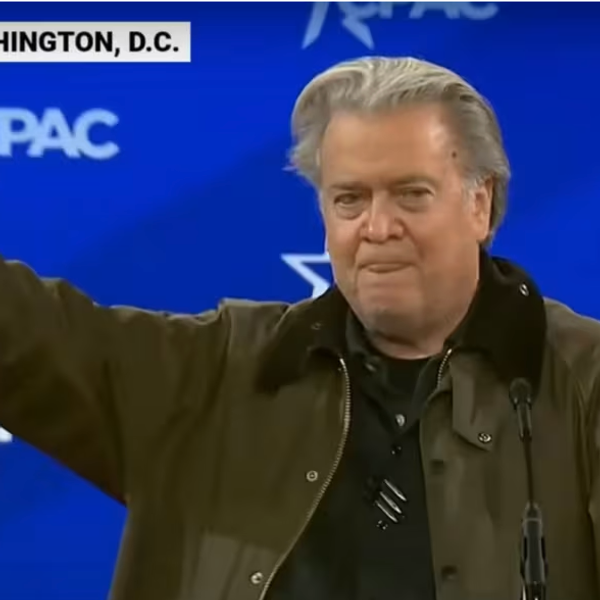BERLIN, N.H. (AP) — Bulling its way into 2012, the Tea Party is shaping the race for the GOP presidential nomination as candidates parrot the movement’s language and promote its agenda while jostling to win its favor.
That’s much to the delight of Democrats who are working to paint the Tea Party and the eventual Republican nominee as extreme.
“The Tea Party isn’t a diversion from mainstream Republican thought. It is within mainstream Republican thought,” Mitt Romney told a New Hampshire newspaper recently, defending the activists he’s done little to woo, until now.
The former Massachusetts governor is starting to court them more aggressively as polls suggest he’s being hurt by weak support within the movement, whose members generally favor rivals such as Texas Gov. Rick Perry and Minnesota Rep. Michele Bachmann.
Romney’s shift is the latest evidence of the big imprint the Tea Party is leaving on the race.
Such overtures come with risks, given that more Americans are cooling to the Tea Party’s unyielding tactics and bare-bones vision of the federal government.
After Washington’s debt showdown this summer, an Associated Press-GfK poll found that 46 percent of adults had an unfavorable view of the Tea Party, compared with 36 percent just after last November’s election.
It could give President Barack Obama and his Democrats an opening should the Republican nominee be closely aligned with the Tea Party.
Yet even as the public begins to sour on the movement, Romney and other GOP candidates are shrugging off past Tea Party disagreements to avoid upsetting activists.
That includes Perry, who faced a Tea Party challenger in his most recent election for governor and who has irked some Tea Party-ers so much that they are openly trying to undercut his candidacy. Instead of fighting back, Perry often praises the Tea Party.
In his book “Fed Up!” Perry wrote: “We are seeing an energetic and important push by the American people — led in part by the Tea Party movement — to give the boot to the old-guard Washington establishment who no longer represent us.”
There’s a reason for the coziness. Voters who will choose the GOP nominee identify closely with the movement.
A recent AP-GfK survey showed that 56 percent of Republicans and GOP-leaning people identified themselves as Tea Party supporters. Also, Republicans who back the Tea Party place a higher priority than other Republicans on the budget deficit and taxes, issues at the center of the nomination contest.
Last year, the Tea Party injected the GOP with a huge dose of enthusiasm, helping it reclaim the House and end one-party rule in Washington. These days, they are firing up the campaign trail in early-voting Iowa, New Hampshire and South Carolina.
It’s little wonder, then, why many of the White House aspirants are popping up at rallies by the Tea Party Express, a Sacramento, Calif.-based political committee that’s in the midst of a 30-city bus tour. That tour ends Sept. 12 in Tampa, Fla., where the group will team with CNN to sponsor a nationally televised GOP debate. Every Republican candidate faring strongly in the polls is set to participate.
Some grass-roots activists will cringe. They consider the Tea Party Express uncomfortably close to the GOP establishment. Nonetheless, “it’s a moment of political arrival” for the Tea Party, says Bruce Cain, a University of California, Berkeley political scientist.
Five months before the first voting in the nomination fight, a Gallup survey of Republicans and GOP-leaning independents last week found Perry pulling strong support from voters who identify themselves as Tea Party supporters, with 35 percent, followed by Romney and Bachmann at 14 percent.
That may help explain why Romney decided to speak Sunday at a Tea Party Express rally in New Hampshire and appear Monday at a forum in South Carolina hosted by GOP Sen. Jim DeMint, who oversees a political committee that has supported Tea Party candidates.
DeMint said the Tea Party is “one of the best things that’s happened to our country and to politics, because there’s a broad cross-section of Americans involved in citizen activism today. And some are called Tea Party; some are not.”
Rather than anointing any candidate, DeMint said Sunday on ABC’s “This Week” that he’s looking to see which one “really catches the attention and inspires the average American, who has gotten involved with politics and the political process.”
Perry, Bachmann and others in the 2012 planned to appear at DeMint’s event.
Some Tea Party groups plan to protest Romney’s appearances. They are irked that as governor, he signed a bill that enacted a health program mandating insurance coverage. It served as a precursor to Obama’s federal measure that the Tea Party despises.
“Mitt Romney is a poser,” said Andrew Hemingway, chairman of the New Hampshire Liberty Caucus, which helped coordinate an anti-Romney rally in Concord. “He’s a fraud trying to stand on a Tea Party stage.”
Romney has stepped up his courtship in recent weeks. At a veterans’ hall in Berlin, N.H., a voter asked how Romney would handle the “right-wing fringe” that, the questioner said, had taken over the GOP.
Romney’s answer: “I’ll take a bit of exception with that. … You’re not going to see me distance myself from those who believe in small government, because I believe in it too.”
Other candidates are also rushing to defend the Tea Party.
Rick Santorum, a former Pennsylvania senator, recently ridiculed a Democratic congresswoman who said the Tea Party should “go straight to hell.” Americans on the political left “absolutely despise the founding principles of this country,” he said.
When Democrats accused the Tea Party of holding the GOP hostage during the debt debate, Bachmann sent out a fundraising letter that said, “Only in the bizarro world of Washington is fiscal responsibility sometimes defined as terrorism.”
The Tea Party is felt in other ways.
At an Iowa debate in August, every candidate on stage signaled opposition to a debt-reduction deal if it included as much as $1 in tax increases for every $10 in spending cuts. Tea Party groups oppose tax increases.
The early exit of former Minnesota Gov. Tim Pawlenty from the race can be attributed in part to his failure to earn credibility with the Tea Party movement. Bachmann’s entire candidacy could, perhaps, be attributed to encouragement she received from Tea Party backers; she’s courted them since the party’s founding.
Each time a candidate is linked to the movement, the Democratic National Committee gleefully works to brand the candidate, and the Republican Party in general, as outside the mainstream.
Tea Party activists are emboldened after helping get 30 like-minded House members elected last fall. Their victories changed the direction of Congress so much that demands from Tea Party-aligned lawmakers nearly halted government during this summer’s debt debate.
Aside from the presidential race, Tea Party leaders have no less than 100 congressional primaries in their sights as they look to expand their influence on Capitol Hill.
Whatever happens, the party is leaving a stamp on the presidential race, and Democrats hope it will last.











